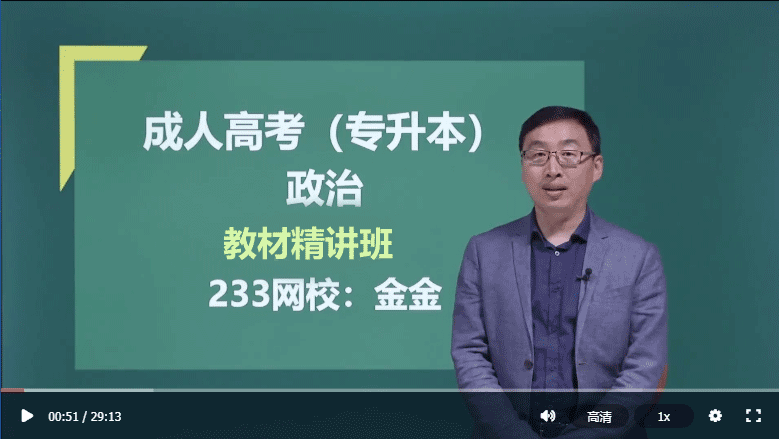жҲҗдәәй«ҳиҖғй«ҳдёӯиө·зӮ№иӢұиҜӯеҗҢд№үиҜҚи§ЈжһҗпјҲдёҖпјү
гҖҖгҖҖвҖңд»»дҪ•дәәзҡ„зҹҘиҜҶгҖҒжҖ§ж је’ҢиғҪеҠӣйғҪжҳҜз”ұиө·еҲқзҡ„е…ҙи¶ЈеҠ дёҠеҗҺжқҘжҺҘеҸ—зҡ„и®ӯз»ғиҖҢеҫ—еҲ°зҡ„гҖӮвҖқ пјҲзҲұеҫ·еҚҺLВ·жЎ‘жҲҙе…ӢпјүгҖӮ
гҖҖгҖҖCompetence suggests the ability to do something satisfactorily but not necessarily outstandingly wellпјҡ
гҖҖгҖҖCompetence жҢҮиғҪеҒҡеҲ°дҪҝдәәж»Ўж„ҸдҪҶ并дёҚдёҖе®ҡзү№еҲ«еҮәдј—зҡ„иғҪеҠӣпјҡ
гҖҖгҖҖThe concerto was performed by a violinist of unquestioned competence but limited imagination.
гҖҖгҖҖе°ҸжҸҗзҗҙ家жүҖжј”еҘҸзҡ„еҚҸеҘҸжӣІжҜ«ж— з–‘й—®жҳҜеҮәиүІзҡ„пјҢдҪҶжҳҜзјәд№ҸжғіеғҸеҠӣгҖӮ
гҖҖгҖҖAptitude implies inherent capacity for learningпјҢ understandingпјҢ or performingпјҡ
гҖҖгҖҖAptitude жҡ—жҢҮеҶ…еңЁзҡ„еӯҰд№ гҖҒзҗҶи§Је’ҢиЎЁжј”зҡ„жүҚиғҪпјҡ
гҖҖгҖҖEven as a child he showed an unusual aptitude for mathematics.
гҖҖгҖҖз”ҡиҮіеӯ©з«Ҙж—¶д»–е°ұжҳҫйңІеҮәйқһеҗҢдёҖиҲ¬зҡ„ж•°еӯҰжүҚиғҪ
гҖҖгҖҖеҪўе®№иҜҚ complete е’Ң perfect иҷҪ然йғҪжңүвҖңе®Ңе…Ёзҡ„вҖқеҗ«д№үпјҢдҪҶ并йқһеҗҢд№үиҜҚпјҢеңЁи®ёеӨҡжғ…еҶөдёӢе®ғ们еҸӘжҳҜиҜҚд№үзӣёиҝ‘иҖҢе·ІгҖӮ
гҖҖгҖҖcomplete зҡ„еҗ«д№үжҳҜвҖңе®Ңж•ҙж— зјәзҡ„вҖқгҖҒвҖңеңҶж»Ўзҡ„вҖқ
гҖҖгҖҖHe is a complete stranger to me.
гҖҖгҖҖжҲ‘дёҖзӮ№д№ҹдёҚи®ӨиҜҶд»–гҖӮпјҲеҸҜд»Ҙе’Ң perfect жҚўз”Ёпјү
гҖҖгҖҖBefore longпјҢ the noise dropped completely
гҖҖгҖҖдёҚд№…пјҢйӮЈиҪ°йёЈеЈ°е°ұе®Ңе…Ёж¶ҲеӨұдәҶгҖӮ
гҖҖгҖҖperfect дёҚд»…еҸҜиЎЁзӨәвҖңе®Ңж•ҙж— зјәвҖқгҖҒвҖңе®Ңе…ЁвҖқжҲ–вҖңзәҜзІ№вҖқпјҢиҖҢдё”еҗ«жңүвҖңе®ҢзҫҺж— зјәвҖқгҖҒвҖңеҢҖз§°вҖқжҲ–вҖңеҒҘе…ЁвҖқзҡ„еҗ«д№үпјҢжҖ»д№Ӣе®ғеҸҜд»ҘиЎЁзӨәвҖңе°Ҫе–„е°ҪзҫҺвҖқгҖӮз”ұдёҠеҸҜи§ҒпјҢ perfect еҸҜд»ҘиЎЁзӨә complete зҡ„еҗ«д№үпјҢиҖҢ complete еҸӘиғҪиЎЁзӨә perfect зҡ„дёҖйғЁеҲҶеҗ«д№үгҖӮ дҪҶжҳҜпјҢ a complete stranger е’Ң a perfect stranger жІЎжңүд»Җд№Ҳе·®ејӮпјҢcomplete happiness е’Ң perfect happiness йғҪиЎЁзӨәдәҶвҖңзҫҺж»Ўзҡ„е№ёзҰҸвҖқгҖӮ
гҖҖгҖҖBut as they soon discoveredпјҢ disguises can sometimes be too per fect.
гҖҖгҖҖжӯЈиұЎд»–们дёҚд№…е°ұеҸ‘зҺ°зҡ„йӮЈж ·пјҢеҢ–иЈ…ж•Ҳжһңжңүж—¶еҸҜиғҪеӨӘе®ҢзҫҺж— зјәдәҶгҖӮ
гҖҖгҖҖIt is a perfect alibi.
гҖҖгҖҖиҝҷе®Ңе…ЁжҳҜеңЁејҖи„ұзҪӘиҙЈгҖӮ
гҖҖгҖҖIt's a perfect stranger here.
гҖҖгҖҖжҲ‘еңЁиҝҷйҮҢе®Ңе…ЁжҳҜдёӘйҷҢз”ҹдәәгҖӮпјҲеҸҜд»ҘжҚўз”Ё completeпјү
гҖҖгҖҖжіЁпјҡperfect зҡ„еҗҢд№үиҜҚжңү wholeпјҢ entireпјӣ complete зҡ„еҗҢд№үиҜҚжңү fullпјҢ plenary.
гҖҖгҖҖcompleteпјҢ closeпјҢ endпјҢ finishпјҢ concludeпјҢ terminate
гҖҖгҖҖThese verbs mean to bring or to come to a natural or proper stopping point.
гҖҖгҖҖиҝҷдәӣеҠЁиҜҚйғҪжҳҜжҢҮиҫҫеҲ°дёҖдёӘиҮӘ然жҲ–йҖӮеҪ“зҡ„з»ҲзӮ№гҖӮ
гҖҖгҖҖComplete suggests the final stage in bringing an undertaking to fruitionпјҡ
гҖҖгҖҖComplete жҡ—жҢҮеҸ–еҫ—жҲҗеҠҹзҡ„еҗҺдёҖжӯҘпјҡ
гҖҖгҖҖвҖңNothing worth doing is completed in our lifetimeвҖқ пјҲReinhold NiebuhrпјүгҖӮ
гҖҖгҖҖвҖңжҲ‘们иҝҷиҫҲеӯҗиҝһдёҖ件жңүж„Ҹд№үзҡ„дәӢд№ҹжІЎе®ҢжҲҗвҖқ пјҲиҺұеӣ йңҚе°”еҫ·В·е°јжіҠиө«пјүгҖӮ
гҖҖгҖҖClose applies to the ending of something ongoing or continuingпјҡ
гҖҖгҖҖClose жҢҮжӯЈеңЁиҝӣиЎҢзҡ„дәӢ件жҺҘиҝ‘з»ҲзӮ№пјҡ
гҖҖгҖҖThe orchestra closed the concert with an encore.
гҖҖгҖҖдәӨе“Қд№җеӣўеңЁеҶҚжқҘдёҖж¬Ўзҡ„ж¬ўе‘јеЈ°дёӯз»“жқҹдәҶйҹід№җдјҡгҖӮ
гҖҖгҖҖIf there is a further falloff in ticket salesпјҢ the play will close.
гҖҖгҖҖеҰӮжһңй—ЁзҘЁй”Җе”®иҝӣдёҖжӯҘдёӢи·ҢпјҢиҝҷдёӘеү§зӣ®е°ұдјҡеҒңжј”гҖӮ
гҖҖгҖҖEnd emphasizes finalityпјҡ
гҖҖгҖҖEnd ејәи°ғз»“жһңпјҡ
гҖҖгҖҖWe ended the meal with fruit and cheese.
гҖҖгҖҖжҲ‘们еҗҺеҗғзҡ„жҳҜж°ҙжһңе’ҢеҘ¶й…ӘгҖӮ
гҖҖгҖҖвҖңWhere laws endпјҢ tyranny beginsвҖқ пјҲWilliam PittпјүгҖӮ
гҖҖгҖҖвҖңе“ӘйҮҢжІЎжңүжі•еҲ¶пјҢжҡҙж”ҝе°ұд»Һе“ӘйҮҢејҖе§ӢвҖқ пјҲеЁҒе»үе§ҶВ·зҡ®зү№пјүгҖӮ
гҖҖгҖҖFinish is sometimes interchangeable with completeпјҡ
гҖҖгҖҖFinish жңүж—¶еҸҜдёҺcompleteдә’жҚўпјҡ
гҖҖгҖҖclose жҜ”иҫғжҷ®йҖҡпјҢжңүж—¶еҸҜд»Ҙе’Ңshutдә’жҚўдҪҝз”ЁпјҢдҪҶе®ғжӣҙејәи°ғвҖңдёҚи®©жҹҗдәәжҲ–жҹҗзү©иҝӣе…ҘжҲ–йҖҡиҝҮвҖқзҡ„ж„ҸжҖқпјҢжңүж—¶жңүвҖңдёҚжҺҘзәівҖқзҡ„ж„ҸжҖқпјҢдҪҶйҖҡеёёиЎЁзӨәвҖңе…ій—ӯвҖқиҝҷдёҖеҠЁдҪң
гҖҖгҖҖIt's SundayпјҢ so all the shops are closed.
зӣёе…іжҺЁиҚҗ
- 2017е№ҙжҲҗдәәй«ҳиҖғй«ҳиө·зӮ№иӢұиҜӯиҖғиҜ•иҫ…еҜј:д»ӢиҜҚзҹӯиҜӯ04-10
- 2017е№ҙжҲҗдәәй«ҳиҖғй«ҳиө·зӮ№иӢұиҜӯиҖғиҜ•еҺҶе№ҙзңҹйўҳдҪңж–ҮзІҫйҖүжұҮжҖ»04-04
- 2017е№ҙжҲҗдәәй«ҳиҖғй«ҳиө·зӮ№иӢұиҜӯиҖғиҜ•еҺҶе№ҙзңҹйўҳдҪңж–ҮзІҫйҖүеҚҒдёү04-03
- 2017е№ҙжҲҗдәәй«ҳиҖғй«ҳиө·зӮ№иӢұиҜӯиҖғиҜ•еҺҶе№ҙзңҹйўҳдҪңж–ҮзІҫйҖүеҚҒдәҢ04-02
- 2017е№ҙжҲҗдәәй«ҳиҖғй«ҳиө·зӮ№иӢұиҜӯиҖғиҜ•еҺҶе№ҙзңҹйўҳдҪңж–ҮзІҫйҖүеҚҒдёҖ04-01
| ҝОіМЧЁТөГыіЖ | ҪІКҰ | ФӯјЫ/УЕ»ЭјЫ | Гв·СМеСй | ұЁГы |
|---|---|---|---|---|
| УпОД(ёЯЖрөг)ҫ«ҪІ°а | өЛҫэГД | ЈӨ150 / ЈӨ150 |  |
ұЁГы |
| УўУп(ёЯЖрөг)ҫ«ҪІ°а | Monica | ЈӨ150 / ЈӨ150 |  |
ұЁГы |
| КэС§(ОД)ҫ«ҪІ°а | Нх·ј | ЈӨ150 / ЈӨ150 |  |
ұЁГы |
| КэС§(Ан)ҫ«ҪІ°а | ВЮУЧЦҘ | ЈӨ150 / ЈӨ150 |  |
ұЁГы |
| ҙуС§УпОД(ЧЁЙэұҫ)ҫ«ҪІ°а | Е·Сф°ШБШ | ЈӨ150 / ЈӨ150 |  |
ұЁГы |
| УўУп(ЧЁЙэұҫ)ҫ«ҪІ°а | Monica | ЈӨ150 / ЈӨ150 |  |
ұЁГы |
| ёЯөИКэС§(Т»)(ЧЁЙэұҫ)ҫ«ҪІ°а | НхМО | ЈӨ150 / ЈӨ150 |  |
ұЁГы |
| ёЯөИКэС§(¶ю)(ЧЁЙэұҫ)ҫ«ҪІ°а | ВЮУЧЦҘ | ЈӨ150 / ЈӨ150 |  |
ұЁГы |
ёЁөјҝОіМ
- ёЯЖрөг-КэС§(ОДК·ІЖҫӯАа)

- Нх·јАПКҰ
 Гв·СКФМэ
Гв·СКФМэ
- ёЯЖрөг-УўУп

- MonicaАПКҰ
 Гв·СКФМэ
Гв·СКФМэ
- ЧЁЙэұҫ-ҙуС§УпОД

- Е·Сф°ШБШАПКҰ
 Гв·СКФМэ
Гв·СКФМэ
°ај¶ҪйЙЬ
МЧІН°ьә¬ЈәЧЁЙэұҫVIP°а/ёЯЖрөгVIP°аЈЁә¬ҫ«ҪІ+ХжМвҪвОц+ДЈҝјөгМв)
МЧІНУЕКЖЈә1ЎўЛш¶ЁәЛРДҝјөг
2ЎўҝјЗ°·ў·Е2МЧКФМв
3ЎўГв·СЦШС§Т»ҙОұЈХП
ЕдМЧ·юОсЈә1ЎўГв·СМвҝв
2ЎўҝОіМҪІТе+ҝОјюПВФШ+ТЖ¶ҜҝОМГ







 Гв·СКФМэ
Гв·СКФМэ 




